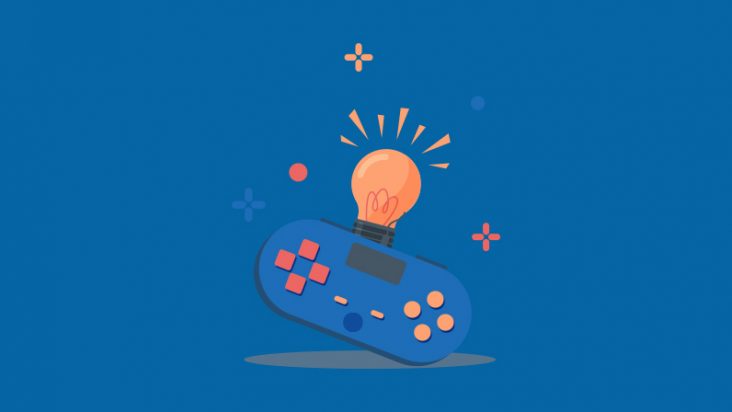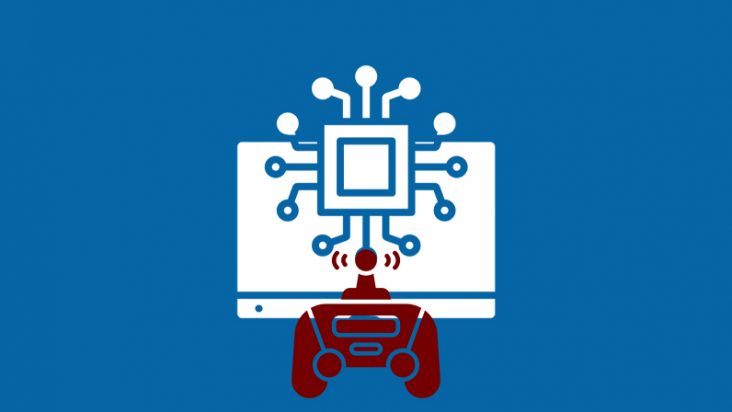
Intellectual property in the gaming industry
The importance of intellectual property (IP) in the gaming industry is crucial as it provides legal protection for the unique and creative elements of video games, such as software, music, art, and characters. The gaming industry is the largest sector in the entertainment industry and is projected to generate revenue of $222.6 billion by 2024, according to Newzoo. As the popularity of video games continues to grow, IP rights have become a major concern for game developers, publishers, and players.
Statistics indicate that the gaming industry heavily relies on IP protection. The Entertainment Software Association (ESA) reported in 2019 that 95% of video games developed in the United States were protected by IP rights, with the majority being protected by copyright law. Additionally, around 46% of video games developed in the U.S. were registered trademarks.
Before we can understand the difference of obtaining intellectual property (IP) rights for games developed by white label companies, it’s important to be familiar with several key terms:
- One of the main forms of IP protection in the gaming industry is copyright law. Copyright law grants exclusive rights to creators of original works, such as game software, music, art, and characters, and is crucial in ensuring that game developers can reap the benefits of their creative efforts without others copying or using their work without permission. The Copyright Act of 1976, the Digital Millennium Copyright Act (DMCA), and Trade-Related Aspects of Intellectual Property Rights (TRIPS) aid in securing game developers’, publishers’, and rights holders’ brand and avoiding consumer confusion by preventing the use of similar marks by others.
- Trademark law is another form of IP protection that helps distinguish one game from another and protects game publishers’ brand. Trademarks also assist players in identifying and recognizing their favorite games. The Lanham Act, Trademark Dilution, The Madrid Protocol, and The Paris Convention ensure game developers’, publishers’, and rights holders’ rights by preventing illegal duplication, distribution, or alteration of their creations.
- Patent law is also relevant in the gaming industry, as game developers may seek to protect their innovations and unique features through patents for game software, methods, and processes performed by a game. This protection helps to protect the investment in research and development and prevents others from copying their innovations. The Patent Act, The Paris Convention, and The Patent Cooperation Treaty (PCT) empower game developers, publishers, and rights holders to safeguard their video game technology and innovations and deter others from using comparable technology without permission.
Is it the same for games made by white label development companies?
The IP rights for games developed by white label companies can be complex and dependent on the deal between the initial creator and the company buying the game. Typically, the original developer gives up all rights and ownership of the game and transfers all IP to the purchasing company in exchange for compensation. This provides the purchasing company with complete control over the game and the ability to use it as they please, including making modifications, selling it, and protecting IP rights against any violations.
However, the specific terms of the agreement between the original developer and the purchasing company will influence the scope of the buying company’s rights. For instance, the agreement may limit the company’s ability to make certain alterations to the game or prohibit their use of specific elements such as characters or story. The agreement may also contain clauses regarding ongoing support and maintenance of the game, which could impact the company’s ability to change or sell it.
The terms and conditions of a white label development agreement should be carefully considered by both the original developer and the purchasing company, to ensure that their respective IP rights are protected. The agreement will likely involve the transfer of IP rights from the original developer to the purchasing company, in exchange for a fee. Typically, the purchasing company will have full control over the game and will be able to use it as they see fit, but the agreement may include limitations on certain aspects of the game, such as changes that can be made or the use of specific elements.
In addition to the transfer of IP rights, a confidentiality agreement between the original developer and the purchasing company is also common in white label development agreements. This agreement is designed to keep the original developer’s involvement in the game a secret, to maintain the illusion that the purchasing company is the sole developer and owner of the game.
White label development can be a cost-effective way for companies to enter the gaming market and offer gaming products to their customers. However, it is important to keep in mind that the purchasing company may not have complete control over the game’s success and may have limited ability to differentiate themselves from competitors who may also be using the same game.
The process of acquiring IP rights for white label developed games can be outlined as follows:
- Initial contact: The purchasing company reaches out to the original developer to express interest in acquiring a white label game.
- Due diligence: The purchasing company performs a thorough examination of the original developer and the game to make sure it meets their standards and needs. This could include reviewing the game’s source code, graphics, audio, and other confidential information.
- Negotiations: The original developer and the purchasing company negotiate the terms of the agreement, such as the transfer of IP rights, the payment amount, and any limitations on the purchasing company’s use of the game.
- Review of agreement: Legal professionals from both parties review the agreement to ensure that it is legally binding and protects the interests of both parties. This may involve examining IP laws, contract laws, and other relevant regulations.
- Modification of agreement: If necessary, the agreement is altered based on the recommendations of the legal professionals.
- Signing of agreement: Both parties sign the agreement, indicating their acceptance of its terms and conditions.
- Transfer of IP rights: The original developer transfers all rights and ownership of the game, including patents, trademarks, copyrights, and trade secrets, to the purchasing company.
- Confidentiality agreement: The original developer may also be required to sign a confidentiality agreement to protect the proprietary information and trade secrets related to the game.
- Payment: The original developer receives a fee for their services and the transfer of IP rights.
- Customization: The purchasing company can then tailor the game to their target audience by modifying the content, graphics, audio, and user interface as desired.
It is important to keep in mind that the specific steps and the details of each step will vary depending on the agreement between the original developer and the purchasing company. It is recommended that both parties seek the advice of legal professionals to ensure that the agreement is comprehensive and protects their rights and interests.
So, that makes it easier?
The level of difficulty in obtaining IP rights for games developed by a white label firm as compared to other game development companies varies based on various factors. These factors include the specifics of the agreement between the original developer and the purchasing company, the laws and regulations governing IP in the region where the agreement is signed, and the proficiency of the legal professionals involved in the process.
Generally, obtaining IP rights for games created by a white label company is comparatively simpler due to the well-defined terms of the agreement and clear transfer of rights and ownership. However, this depends on the agreement’s thoroughness and the extent of due diligence performed by both parties.
It is essential to note that each case is distinct and that it is recommended for both the original developer and the purchasing company to consult with legal professionals to ensure their rights and interests are safeguarded and the IP rights for the game are acquired in a legally binding and enforceable manner.
What should we do then?
In conclusion, utilizing a white label game development company can offer advantages for businesses looking to break into the gaming industry. However, it is crucial to carefully evaluate the conditions of the agreement, the extent of the rights granted to the purchasing company, and the safeguarding of IP and confidential information.







